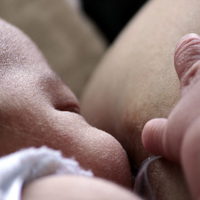The World Health Organisation’s recommendation on breastfeeding: Assessing knowledge and practice among mothers in Abuja, Northern Nigeria

Accepted: 22 February 2021
All claims expressed in this article are solely those of the authors and do not necessarily represent those of their affiliated organizations, or those of the publisher, the editors and the reviewers. Any product that may be evaluated in this article or claim that may be made by its manufacturer is not guaranteed or endorsed by the publisher.
Authors
Despite the fact that breastfeeding remains the healthiest, simplest and least expensive means of meeting the nutritional needs of newborns and infants, the knowledge and practice as recommended by WHO remain low in most low-and middle-income countries. This study aims at exploring the gap in the knowledge of exclusive breastfeeding among mothers in Northern Nigeria as well as comparing their practises with the WHO recommendations. This was a cross-sectional facility-based study among 343 mothers in Abuja, Northern Nigeria. Data was collected over 8 weeks using a structured interviewer-administered questionnaire assessing knowledge and practise of breastfeeding based on the WHO recommendations. Data collected were analyzed using SPSS version 22. Chi square test of statistical significance was used to measure the degree of bivariate associations at a level of p < 0.05. Only 42.6% of the mothers had good general knowledge of breastfeeding. Exclusive breastfeeding for 6 months was practised by 232 (75.1%) mothers. Having more than one child was associated with good knowledge of breastfeeding (χ2 = 7.331, p = 0.007) while having poor knowledge of breastfeeding (χ2=5.722, p=0.017) was associated with exclusive breastfeeding practise. Commonest reasons for not practising exclusive breastfeeding were insufficient breast milk (38.7%) and resumption of work (19.8%). In this study, the practise of initiating breastfeeding within an hour after birth and exclusive breastfeeding are both in line with WHO recommendations. Continuous breastfeeding awareness campaigns are needed to improve knowledge and sustain the practise of exclusive breastfeeding.>
How to Cite
PAGEPress has chosen to apply the Creative Commons Attribution NonCommercial 4.0 International License (CC BY-NC 4.0) to all manuscripts to be published.

 https://doi.org/10.4081/acbr.2021.119
https://doi.org/10.4081/acbr.2021.119



